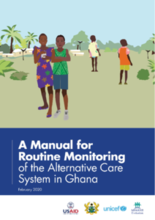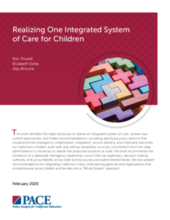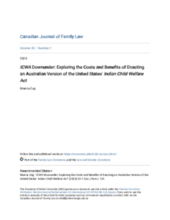Displaying 241 - 250 of 1798
One of several reports produced as part of the Scottish Independent Care Review, this report demonstrates the current legislative framework of the Scottish care system and how it must change to achieve The Promise.
The Independent Care Review’s aim is to identify and deliver lasting change in Scotland’s care system and leave a legacy that will transform the wellbeing of infants, children and young people.
One of several reports produced as part of the Scottish Independent Care Review, The Promise sets out an overall view of what the new approach to children's care in Scotland should be.
One of several reports produced as part of the Scottish Independent Care Review, The Pinky Promise presents a young reader-friendly version of The Promise report, which sets out an overall view of what the new approach to children's care in Scotland should be.
The purpose of this manual is to provide guidance on how to collect and report data on children in formal alternative care in a standardised way, and to analyse, present, and make the data available for use.
This brief identifies the steps necessary to realize an integrated system of care, reviews two current approaches, and makes recommendations—including specifying policy reforms that would promote interagency collaboration, integration, service delivery, and improved outcomes for California’s children, both with and without disabilities.
Vulnerability has been a guiding narrative to state interventions towards children and their families in New Zealand. This article shows how this progressive notion has been systematically managed to fit pre-established political and policy priorities.
This document sets out the Scottish Funding Council's National Ambition for Care-Experienced Students for the college and university sectors, outlining their commitment to equal outcomes for care-experienced students and their peers by 2030.
In response to the ongoing call for a complex systems approach for understanding and informing child welfare practice and policy, this article presents a context-specific conceptual framework that combines complexity theory and network analysis.
This article from the Canadian Journal of Family Law finds that an Australian version of the Indian Child Welfare Act (ICWA) of the United States is feasible and could significantly reduce Indigenous child removals and the break up of Indigenous families and communities in Australia.







